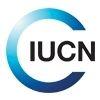|
|

Web Developer - IBAT
|
The platform underlying IBAT is was re-developed in 2018 and we are now looking for a talented all round web developer to be part of the team going forward. The web developer should be keen and passionate about contributing to state of the art web applications, and also making an impact on conservation of biodiversity. They will work closely with a network of conservation scientists, other web and geospatial experts, and will be responsible for maintaining, and building on, the new IBAT web platform.
A detailed description of this role and the main skills we are looking for is available further down, but essentially, we are looking for a developer who would be a keen self-motivated technology enthusiast, who is not daunted by trying out new technologies and is able to think ‘outside the box’, with an eye for optimisation, performance, security and understanding the complexities of data management. The developer would be expected to work and manage the full-stack of a critical web application - and should be confident working under the supervision of the IUCN Biodiversity Systems Manager (part of the IUCN Global Species Programme team) and the IBAT Manager.
Development and maintenance of IBAT web-based systems
Lead role in maintaining and improving current web systems and developing new web systems for a variety of projects. Common responsibilities include:
Undertake user needs assessments
Contribute to design of architecture of the web application
Implementation of a robust set of services and APIs to power the web application
Building reusable code and libraries
Implementation of secure systems and data protection
Translation of UI/UX wireframes to visual web elements.
Integration of front-end and back-end aspects of the web application.
Integrate testing as part of development process.
Learning new technologies and staying on top of trends in web development
Strong focus on quality of outputs.
Data management
The developer should be fluent in data management and manipulation, as there are three core biodiversity databases (driving IBAT) which are integrated and used as part of the main web application.
Collaboration
Develop and maintain good working relationships with web development and data teams across the IBAT Alliance
Advise on, and in some cases be able to manage hardware and software required for web application development
Able to successfully coordinate with external consultants on related work.
Contribute ideas and good approaches to development goals, as part of working groups.
|
• Essential -A good first degree or higher in Computer Science / Software Engineering or similar field -Commercial experience in a software development team -Experience in back-end development with good knowledge of Ruby on Rails -Experience in front-end development with experience in HTML, CSS/SASS and Javascript -Familiar and experience with javascript-based frameworks and libraries. -Comfortable using GIT/Version control -Delivering projects in an Agile environment -Demonstrable knowledge of using relational database, and good with database design (PostgreSQL) -Experience using modern web frameworks -Experience using cloud-based services • Desirable -Knowledge of Geographic Information Systems and relevant software such as ArcGIS and QGIS -Web Mapping experience (using PostGIS, CartoDB or ArcGIS, and front-end mapping technologies such as Leaflet / Mapbox/ OpenLayers and the likes) -Continuous integration and deployment experience. -React / Vue.js experience • -Experience of managing positive relationships with multiple teams / external teams • Must be eligible to live and work in the UK without a sponsored visa |
Applicants are requested to apply online through the HR Management System, by opening the vacancy announcement and pressing the "Apply" button.
Applicants will be asked to create an account and submit their profile information. Applications will not be accepted after the closing date. The vacancy closes at midnight, Swiss time (GMT+1 / GMT+2 during Daylight Saving Time, DST). Please note that only selected applicants will be personally contacted for interviews.
Other job opportunities are published in the IUCN website: https://www.iucn.org/involved/jobs/
About IUCN
IUCN is a membership Union uniquely composed of both government and civil society organisations. It provides public, private and non-governmental organisations with the knowledge and tools that enable human progress, economic development and nature conservation to take place together.
Created in 1948, IUCN is now the world’s largest and most diverse environmental network, harnessing the knowledge, resources and reach of more than 1,400 Member organisations and around 16,000 experts. It is a leading provider of conservation data, assessments and analysis. Its broad membership enables IUCN to fill the role of incubator and trusted repository of best practices, tools and international standards.
IUCN provides a neutral space in which diverse stakeholders including governments, NGOs, scientists, businesses, local communities, indigenous peoples organisations and others can work together to forge and implement solutions to environmental challenges and achieve sustainable development.
Working with many partners and supporters, IUCN implements a large and diverse portfolio of conservation projects worldwide. Combining the latest science with the traditional knowledge of local communities, these projects work to reverse habitat loss, restore ecosystems and improve people’s well-being.
www.iucn.org
https://twitter.com/IUCN
